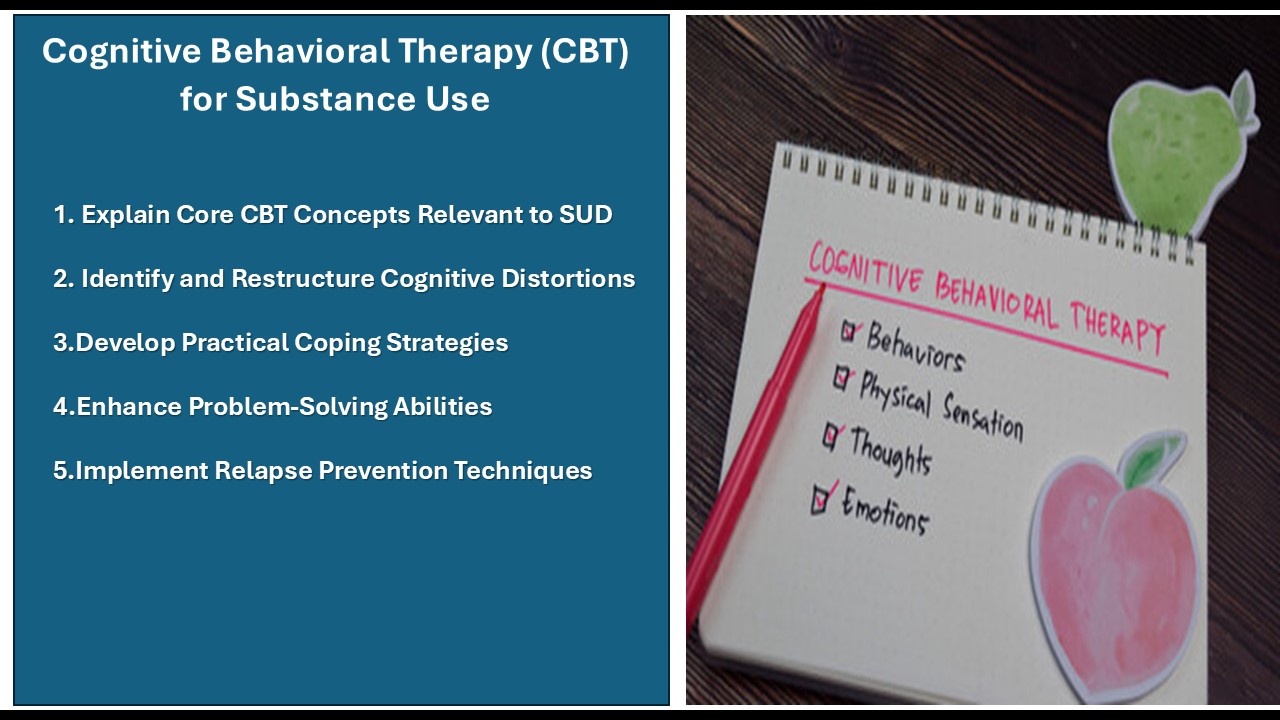An approach to treatment that recognizes the impact of trauma on individuals and integrates practices to promote safety, trust, and empowerment.
Trauma-Informed Care in Treating Substance Use Disorders
Training Description:
In this training, Trauma-Informed Care in Addiction Treatment
counselors will gain an understanding about the influence of trauma on the brain and behaviors. A centeral theme of this is training,
advocating for a trauma-informed approach in treating substance use disorders focusing on safety, trustworthiness, and empowerment.
Counselors learn specific interventions that integrate addiction and trauma work. By adopting
trauma-informed principles, counselors can create a supportive environment that reduces
retraumatization and fosters healthier coping strategies in clients with trauma histories.
- Understand the Neurobiological Impact of Trauma
- Recognize Symptoms and Signs of Traumatic Stress
- Apply Trauma-Informed Principles in Clinical Practice
- Integrate Specific Trauma-Focused Interventions
- Address Cultural and Contextual Factors in Trauma
Course Learning Objectives
This is a web-based self-paced training which provides 2 hours substance specific
board approved hours. The content for this project has been curated or developed by author Michael Daniels
MSW, LCAS, CCS, LCSW and other many amazing professionals who have donated their expertice and time to
ensure practitioners entering the addiction profession have access to quality trainings without barriers
of finance and access.
Receiving Credit: In order to receive credit for the training you must complete the interactive question within
the training. If you do not complete the embedded quizes, when you get to end of the training you will not
receive credit until you complete the embedded quiz questions. In Addition, you must complete the
50 item quiz at the end of the training and receive at least an85% before receiving your certificate. You do have
the option of retaking the quiz until you reach the approved score. Once you submit your quiz, you will receive
your certificate with in 24 hours.
The way traumatic experiences alter brain function and structure, affecting emotional regulation, memory, and substance use behaviors.
A psychological response to past trauma that can result in emotional distress, hypervigilance, dissociation, or re-experiencing traumatic events.
The re-experiencing of trauma symptoms due to triggering environments or interactions, which can occur in clinical settings if trauma is not properly addressed.
A key trauma-informed principle that ensures physical and emotional security for clients undergoing addiction treatment.
Trauma-informed principles emphasizing clear communication, reliability, and consistency in interactions between clients and providers.
Encouraging clients to take control of their healing process, fostering autonomy and self-efficacy in treatment.
Traumatic events experienced in childhood, such as abuse or neglect, that increase the risk of substance use disorders and other mental health issues.
An evidence-based intervention designed for individuals with co-occurring trauma and substance use disorders, focusing on coping skills and emotional regulation.
Tools and methods used to identify trauma histories and their impact on substance use behaviors.
A theory explaining how the autonomic nervous system responds to trauma, influencing emotional regulation and survival mechanisms.
SA state of increased alertness and sensitivity to perceived threats, commonly seen in individuals with trauma histories.
TA coping mechanism where individuals disconnect from reality or emotions as a response to overwhelming trauma.
Adapting trauma-informed interventions to align with clients’ cultural, social, and environmental backgrounds.
Coordinating with professionals across disciplines, such as mental health providers and case managers, to provide comprehensive, trauma-informed care.

Below you will be able to access the training
- Course Introduction (10 minutes)
- Defining SBIRT & Its Purpose (15 minutes)
- Module 2: Core Components of SBIRT (20 minutes)
- Module 3: Rationale and Evidence Base for SBIRT (15 minutes)
- Step-by-Step SBIRT Implementation (30 minutes)
- Tailoring SBIRT for Diverse Populations (20 minutes)
- Course Wrap-Up & Final Assessment (10 minutes)
Additional Resources Related To This Training
Video Related To This Training
Articles Related To This Training
- 1
- 1
- 1
- 1
- 1
Contact: Michael Daniels: Email: danielsm@ecu.edu: Phone: 252 7372117 for any technical questions
Editorial Disclaimer: Although all information contained in each training is based on validated research, any opinions expressed are those of the author's alone, and do not reflect
the opinions of affillate agencies. Although each training has an NCASPPB approved number, they
are not responsible for the content.